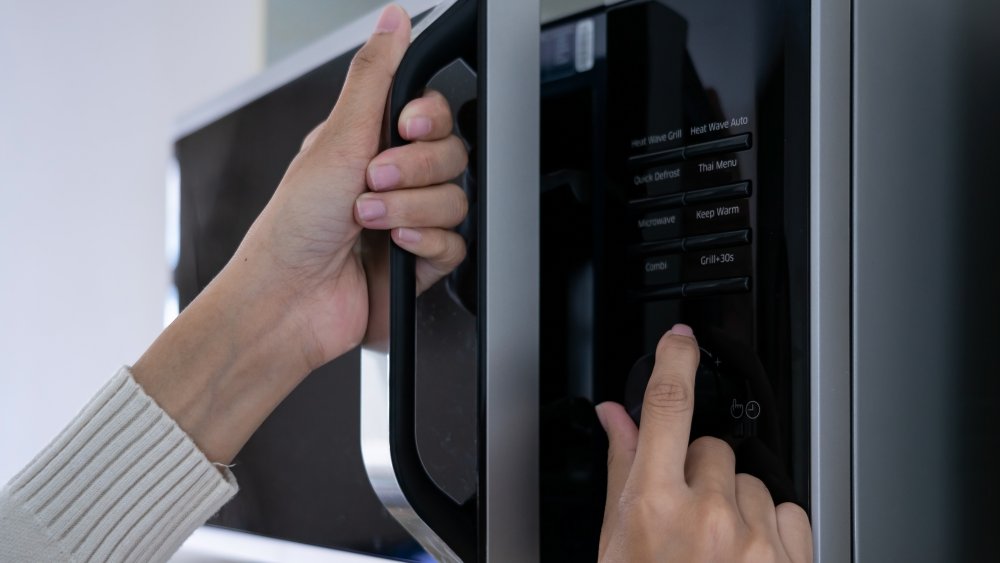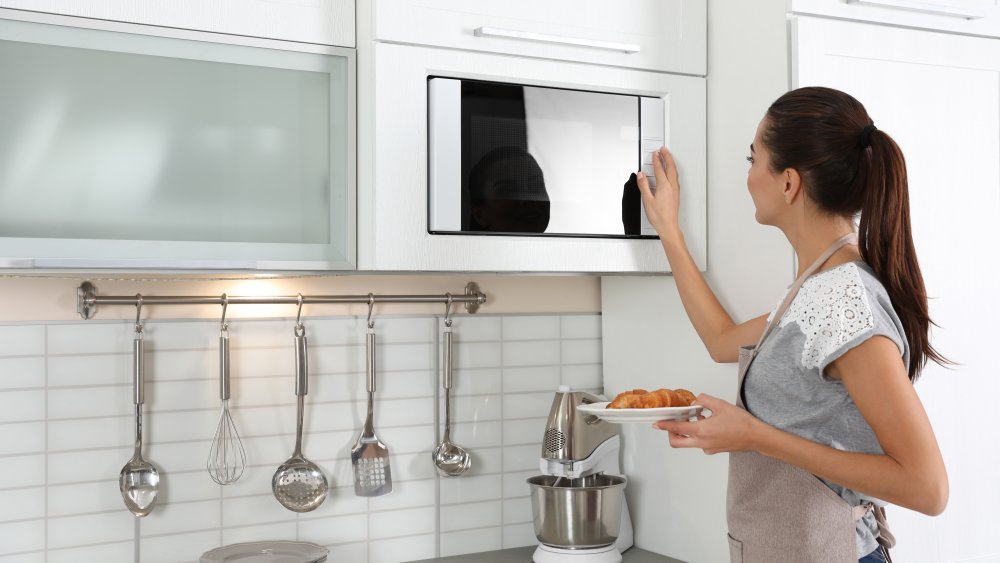Are Microwaves Actually Safe?
While these small, convenient appliances are a staple in nearly every modern household, there are still lots of things you shouldn't do with a microwave. And on top of nuking your coffee into a bitter cup of sadness, many have objections about their safety and impact on food. After all, how does it heat the food but, oftentimes, not the dish that it's in?
David E. Hintenlang, a professor of nuclear and radiological engineering, says, "Microwave ovens cook food by generating intermolecular friction between the molecules of the food. The microwaves cause water molecules to vibrate; the increased friction between the molecules results in heat" (via Scientific American). This effect could do the same to human tissue if the microwaves come too close to the skin. Thankfully, the convenient appliances are constructed in a way that this doesn't happen.
If your microwave doesn't close fully or isn't completely sealed, however, these type of radiation waves can come into contact with your body. This is particularly dangerous for parts of the body that cannot conduct heat effectively, like your eyeballs. So what exactly goes on inside that magic box that transforms pizza rolls from tiny icy blocks into tiny greasy treats? Let's 'add 30 seconds' for a closer look.
Yes, microwaves do create radiation
When you heat your food in a microwave, it creates non-ionizing radiation which is less dangerous than ionized radiation, according to Everyday Health. Ionizing radiation comes from things like x-rays that can "damage your body" and even "change your DNA" if you're frequently exposed. Fortunately, the U.S. Food and Drug Administration monitors microwave manufacturers on how much leakage of radiation comes from their appliances to ensure that consumers aren't fully exposed.
Furthermore, the government agency also warns against standing too close to the microwave while it's running. Children are especially vulnerable to this phenomenon since they "absorb radiation more easily than adults." The best way to keep yourself safe is to check for signs of leakage on your device and use it in moderation while standing a safe distance away.
It's up to you to decide whether or not you feel comfortable with consistent microwave usage, knowing that it heats your food using radioactive waves. Two things are clear, however, it's not safe to stand close to the microwave when it's running and, when they escape, microwaves can be harmful to humans. As long as the microwave is completely sealed, the FDA says it's safe to eat food that's cooked in this way, but knowing this information may change your mind.

